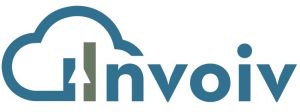As a small business owner, maintaining financial health and maximizing profitability is a strategic practice that my experience has taught me is highly sensitive and can be quite troubling. Luckily, if done the right way, expense management can be streamlined by taking advantage of available resources.
Practical Tips on Business Expenses Management
Keep Track of Expenses and Categorize Them
The first step toward effective expense management is tracking spending. Every business needs to keep a record of all transactions (purchases, payments or reimbursements) and for this, an expense tracker would be an ideal resource. Further, grouping expenses into categories (office supplies, utilities, travel, meals) enables managers to track how much is being spent in each category.
Planning: Set a Budget
Creating a holistic plan that covers revenue expectations and expenses is always the way to go. Allotting realistic spending ceilings and regularly updating them is a big part of effective business expense management. As my experience has taught me, flexibility is the key here in case business operations or market conditions are not ideal.
Decisive Action: Tackle Expenses that Matter
While investing resources, differentiate between essential and non-essential categories because not everything will be impactful on business operations or customer experience. In my professional career, I have always focused on implementing strategies that contribute to business growth such as marketing, product or strategic employee training.
Negotiate Vendor Contracts
Analyze how you engage with vendors and suppliers and consider developing a negotiation strategy to achieve better pricing. Aim for discounts on bulk orders, or take advantage of early payment discounts. Routinely assess the pricing and terms of vendor contracts to guarantee they match your financial strategy and goals.
Utilize Expense Management Tools
Leverage expense management information technology tools and software directed at expense related activities. These tools allow organizations to monitor expenses, streamline the approval workflow, and automate reporting functions. Use a tool that syncs with your accounting software to make account reconciliation and financial reporting easier.
Monitor Cash Flow
It is critical to maintain a positive cash flow balance in order to facilitate day-to-day operations as well as facilitate long-term growth objectives. Keeping track of cash flow helps identify potential cash deficits or surpluses. Implement measures like prompt invoicing, providing discounts for early payments, and balancing accounts receivable and payable optimally.
Educate and Empower Employees
Encourage employees to partake in effective expense management policies. Educate them on company policy on expense reimbursement, limits, and approvals. Promote accurate and timely expense reporting to ensure transparency and accountability across the organization.
Review and Audit Regularly
Review and audit your business expenses on a regular basis to locate possible inefficiencies and discrepancies. Scrutinize expense reports, receipts, and financial statements to uncover errors and unauthorized charges. Take measures to solve discrepancies to avoid losses and ensure compliance with policies and regulations.
Controlling business expenses calls for advanced preparation, consistent tracking, and a series of calculated decisions. Setting a budget and the prioritization of spending, negotiating vendor contracts, employing technology, monitoring cash flow, and educating staff do a great deal to improve the business’s financial performance and achieve sustainable growth.
To get more tips on improving the operations of your small business, make sure you follow our Invoiv blog insights.
Frequently Asked Questions
To track business expenses effectively, record each transaction, such as purchases, payments, and reimbursements sequentially. These categorized expenses should include, but are not limited to, office supplies, travel, meals, and utilities.
Establishing an efficient budget begins with formulating your future expenses and revenue estimates. Choose spending boundaries class by class depending on your financial objectives and cash available. Proactively change your budget as your business activities and the environment evolves.
Incur spending based on items which directly contribute to business growth such as marketing and employee training in an attempt to undo idle business spending. Reduce spending which is largely not related to customer satisfaction or business functions which have an impact on overall business productivity.
In attempts to lower business expenses, consider seeking discounts for bulk purchases as well as discounts for early payments. Regularly assess vendor contracts in order to ensure that competitively priced goods are being offered for sale at terms which are favorable and aim at budgetary goals.
There are a number of tools and software options available to aid in managing business expenses in an effective manner. Such tools have capabilities that automate the tracking of expenses, simplify the approval workflow, and create detailed reports for review. Select a tool that works with your accounting application for easier financial management.
[ Note: This blog post only serves as a guide and should not be treated as tax advice. You are advised to discuss with an appropriate tax expert before adopting any of the provided information. Your individual material situations may vary, and a professional can help you to helm your specific circumstances.]
